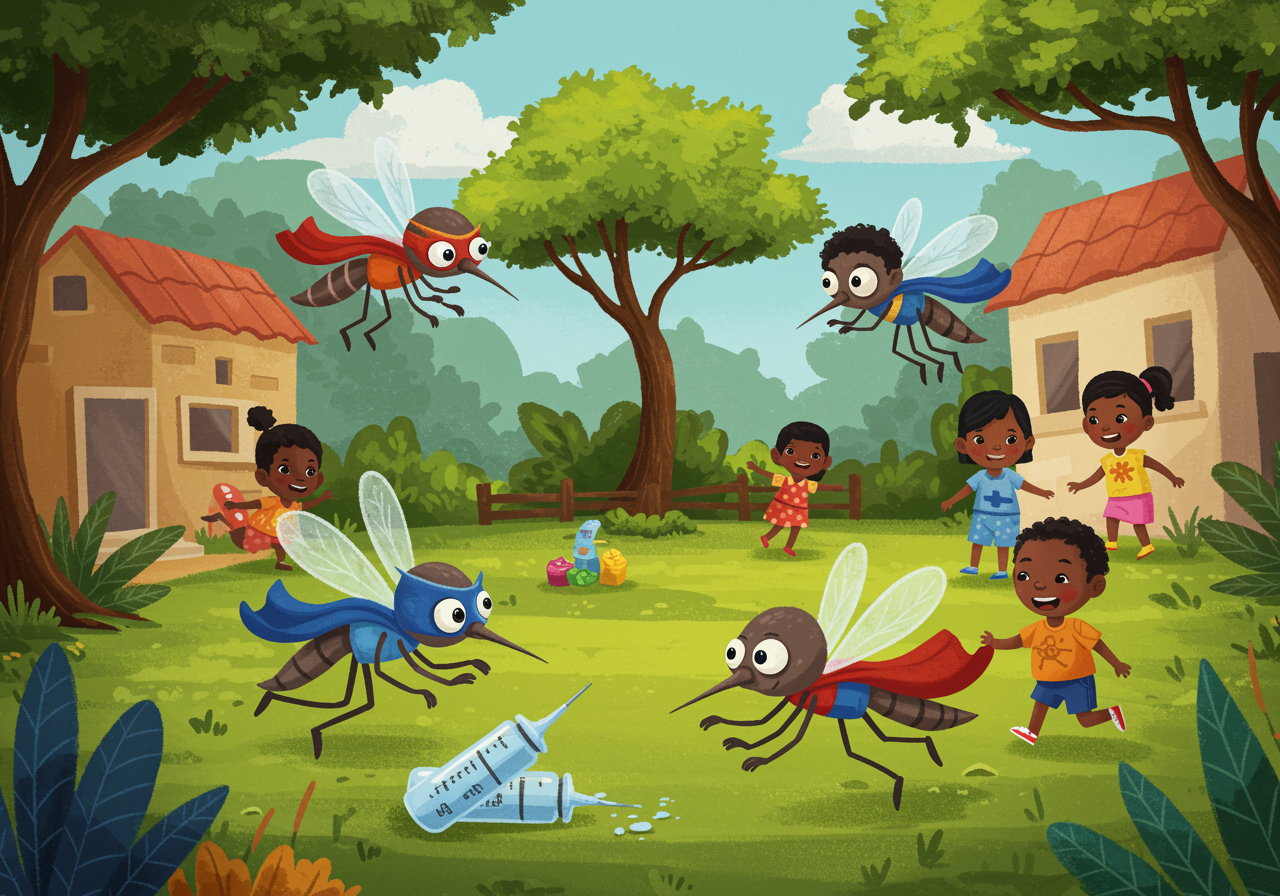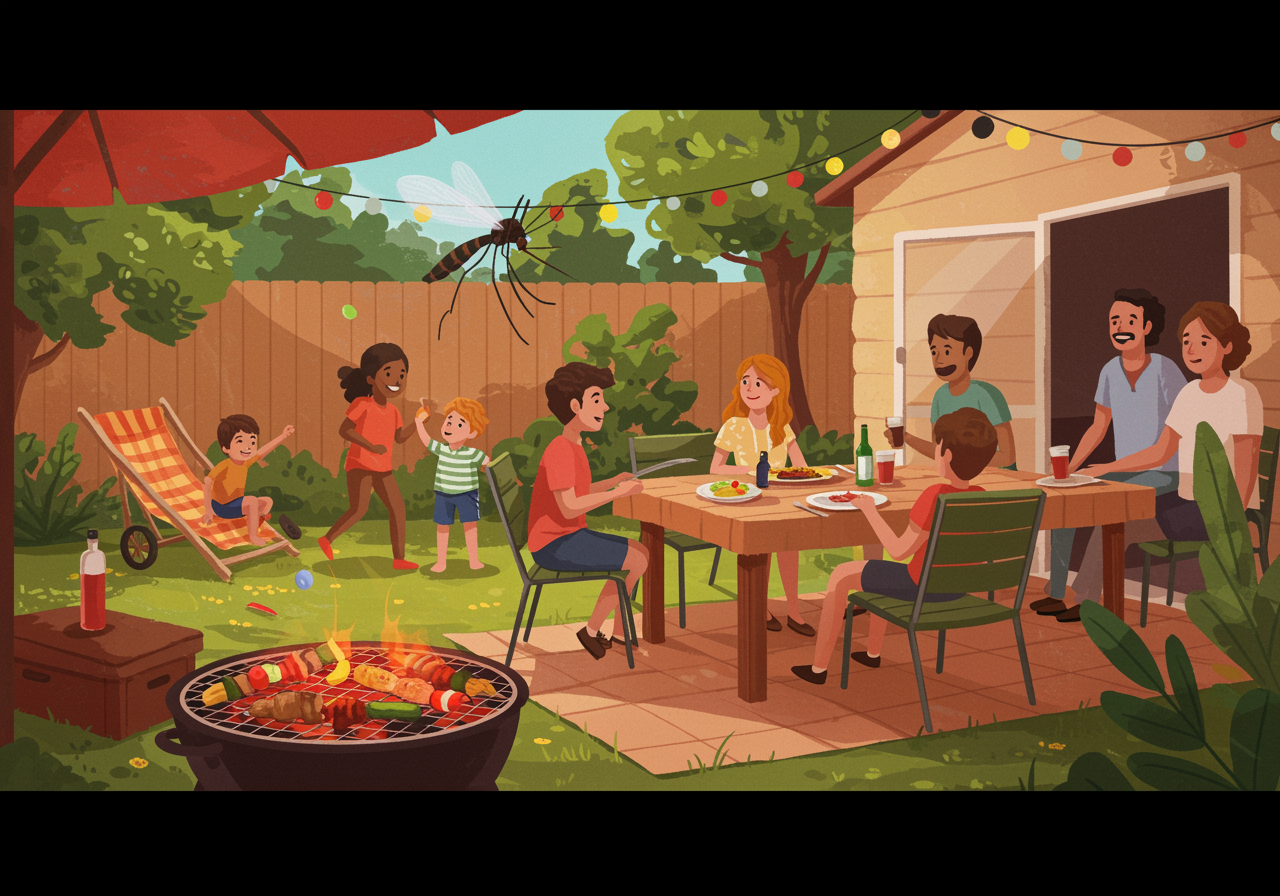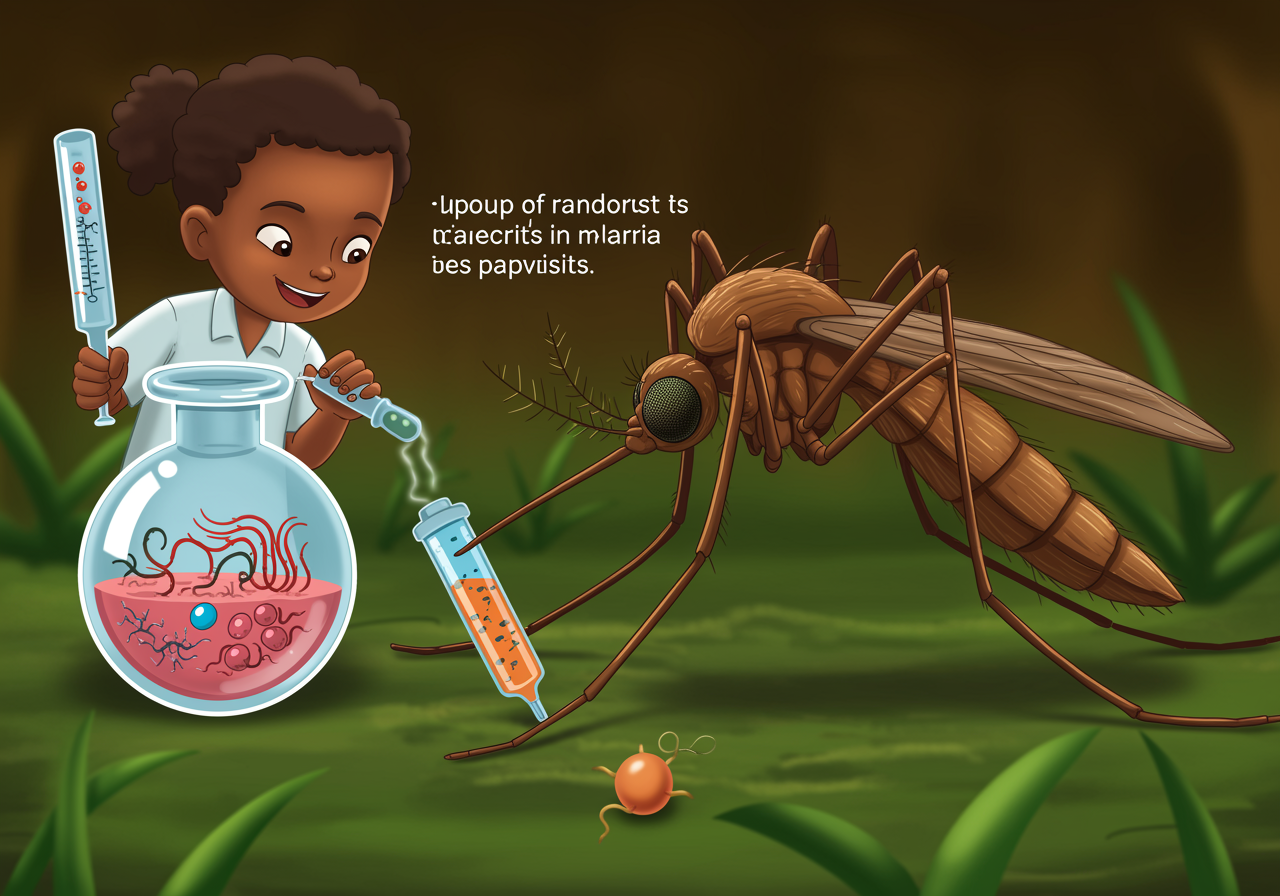Tiny Mosquitoes, Giant Breakthrough: How One Vaccine Could Save Millions
Discover how scientists turned the world’s deadliest mosquito bite into a life-saving victory
Explore how a groundbreaking malaria vaccine could revolutionize global health and open doors to preventing diseases we never thought possible.
Overview
Imagine if we could stop one of the world's biggest killers with just a simple shot! Malaria has been humanity's enemy for thousands of years, spread by mosquitoes and affecting millions of people worldwide every year. But scientists have finally cracked the code with new vaccines that could change everything. This breakthrough isn't just about stopping malaria – it's showing us entirely new ways to prevent diseases that seemed impossible to beat before.

Understand in 30 Seconds
Get up to speed quickly
- What's Malaria Anyway?: Malaria is a serious disease spread by infected mosquitoes that kills over 600,000 people yearly, mostly children in Africa.
- The Vaccine Game-Changer: Scientists created the first effective malaria vaccine called RTS,S, which prevents about 4 out of 10 malaria cases in kids.
- Beyond Just Malaria: This breakthrough is teaching scientists new ways to make vaccines for other tricky diseases like dengue fever and Zika virus.
- Global Health Revolution: If we can beat malaria with vaccines, we might be able to prevent other mosquito-spread diseases worldwide too.
Real Life Scenario
Situations you can relate to
Think about getting a mosquito bite at a summer barbecue – annoying but not dangerous, right? Now imagine if that same tiny bite could make you seriously sick for weeks or even be life-threatening. That's what millions of kids around the world face with malaria every day. But here's where it gets exciting: scientists have figured out how to train our immune systems to recognize and fight off malaria parasites before they can make us sick! It's like giving your body a practice test so it aces the real exam. Have you ever wondered why some diseases seem impossible to prevent while others disappear with vaccines? What do you think makes malaria so tricky to fight compared to something like measles?

Role Play
Spark a conversation with “what if” scenarios
What if you were a scientist trying to convince world leaders to fund malaria vaccine programs?
- Role play: Practice presenting the 'malaria case' – one person plays a scientist, the other plays a skeptical leader asking tough questions about cost and effectiveness.
What if you could design the perfect mosquito-fighting superhero?
- Role play: Create and act out a superhero whose powers represent how vaccines work – maybe 'Memory Cell Man' who remembers every disease villain!
What if you had to explain vaccines to someone from 200 years ago?
- Role play: Take turns being a time traveler explaining modern vaccines using only concepts and language someone from the 1800s would understand.
FAQs
Frequently asked questions people want to know
How is malaria different from a regular flu?
Malaria is caused by tiny parasites (not viruses) that mosquitoes inject into your bloodstream. It causes high fevers, chills, and can damage organs if untreated.
Why did it take so long to make a malaria vaccine?
Malaria parasites are super sneaky – they constantly change their appearance to hide from our immune system, making it hard to create a vaccine that works.
Could this vaccine technology help with other diseases?
Absolutely! Scientists are already using similar approaches to work on vaccines for dengue, Zika, yellow fever, and even some cancers.
Examples in the Wild
See how this works day to day
- Ghana, Kenya, and Malawi started giving the RTS,S malaria vaccine to children in 2019, and it's already prevented thousands of severe malaria cases (World Health Organization (WHO))
- Oxford University developed a new malaria vaccine called R21 that shows 77% effectiveness in trials, potentially better than current vaccines (The Lancet Medical Journal)
- Bill Gates announced $1.2 billion in funding to eliminate malaria by 2030, with vaccines being a key strategy (Gates Foundation)
- Scientists in Burkina Faso are testing genetically modified mosquitoes that can't spread malaria, working alongside vaccine efforts (Nature Journal)
In Summary
What you should know before you start
- Malaria vaccines represent a huge breakthrough after decades of trying to outsmart constantly-changing parasites
- Current vaccines prevent about 40% of malaria cases, with newer ones showing even better results in trials
- This technology is opening doors to vaccines for other mosquito-spread diseases like dengue and Zika
- Successful malaria prevention could save hundreds of thousands of lives annually and transform global health
Pro-tip for Parents
You got this!
If your child seems overwhelmed by the scale of global disease, focus on the human stories and scientific detective work involved. Frame it as 'scientists being problem-solvers' rather than dwelling on scary statistics. Kids often connect better with the 'how' and 'why' of solutions than the magnitude of problems. If they ask difficult questions about why some people get sick and others don't, acknowledge that health inequalities exist while emphasizing how vaccines help level the playing field.

Keep an Eye Out For
Find these examples in everyday life
- News about vaccine rollouts in African countries – great opportunities to discuss global health equity
- Stories about mosquito control programs in your area – connect local pest control to global disease prevention
- Updates on new vaccine technologies like mRNA vaccines for malaria – link to COVID vaccine knowledge they already have
Explore Beyond
Look up these related research topics
- How do mosquitoes actually spread diseases and what makes them such effective 'disease delivery systems'?
- What other breakthrough vaccines are scientists working on for diseases like HIV, tuberculosis, or cancer?
- How do global health organizations coordinate massive vaccination campaigns across different countries?